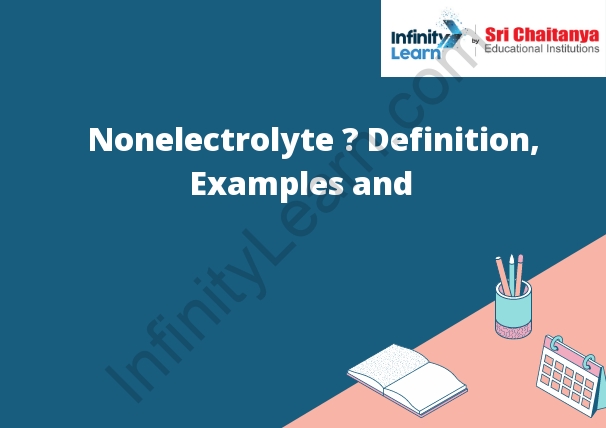Table of Contents
Definition of Nonelectrolyte
A nonelectrolyte is a substance that does not dissociate into ions in solution and does not conduct electricity. A nonelectrolyte is a compound that does not dissociate into ions in solution and, therefore, does not conduct electricity. For example, carbon dioxide, ethylene glycol, and water are all nonelectrolytes. In contrast, salts (such as sodium chloride), acids (such as sulfuric acid), and bases (such as ammonia) are electrolytes, because they dissociate into ions in solution and conduct electricity. The ability of a compound to conduct electricity is due to the presence of ions in the solution. Ions are atoms or molecules that have gained or lost one or more electrons and, therefore, have a net charge. In an aqueous (water) solution, the ions are surrounded by water molecules, which act as a conductor.

Examples of Nonelectrolytes
Nonelectrolytes are substances that do not dissociate in solution to form ions. This means that they do not conduct electricity. Some examples of nonelectrolytes include fats, oils, and solvents like ether and benzene.
Distinguishing Electrolytes from Nonelectrolytes
Electrolytes and nonelectrolytes are two types of molecules that can be dissolved in water. Electrolytes are molecules that dissociate into ions in water, while nonelectrolytes are molecules that do not dissociate into ions in water.
The most important difference between electrolytes and nonelectrolytes is that electrolytes conduct electricity in water, while nonelectrolytes do not. This is because electrolytes dissociate into ions in water, which allows for the movement of electricity through the water. Nonelectrolytes do not dissociate into ions, so they do not allow for the movement of electricity.
Another difference between electrolytes and nonelectrolytes is that electrolytes can dissolve in polar solvents, while nonelectrolytes cannot. Polar solvents are molecules that have a positive end and a negative end. The positive end of a polar solvent will attract the negative end of an electrolyte, while the negative end of a polar solvent will attract the positive end of an electrolyte. This is why electrolytes dissolve in water, which is a polar solvent. Nonelectrolytes cannot dissolve in polar solvents because they do not dissociate into ions.






